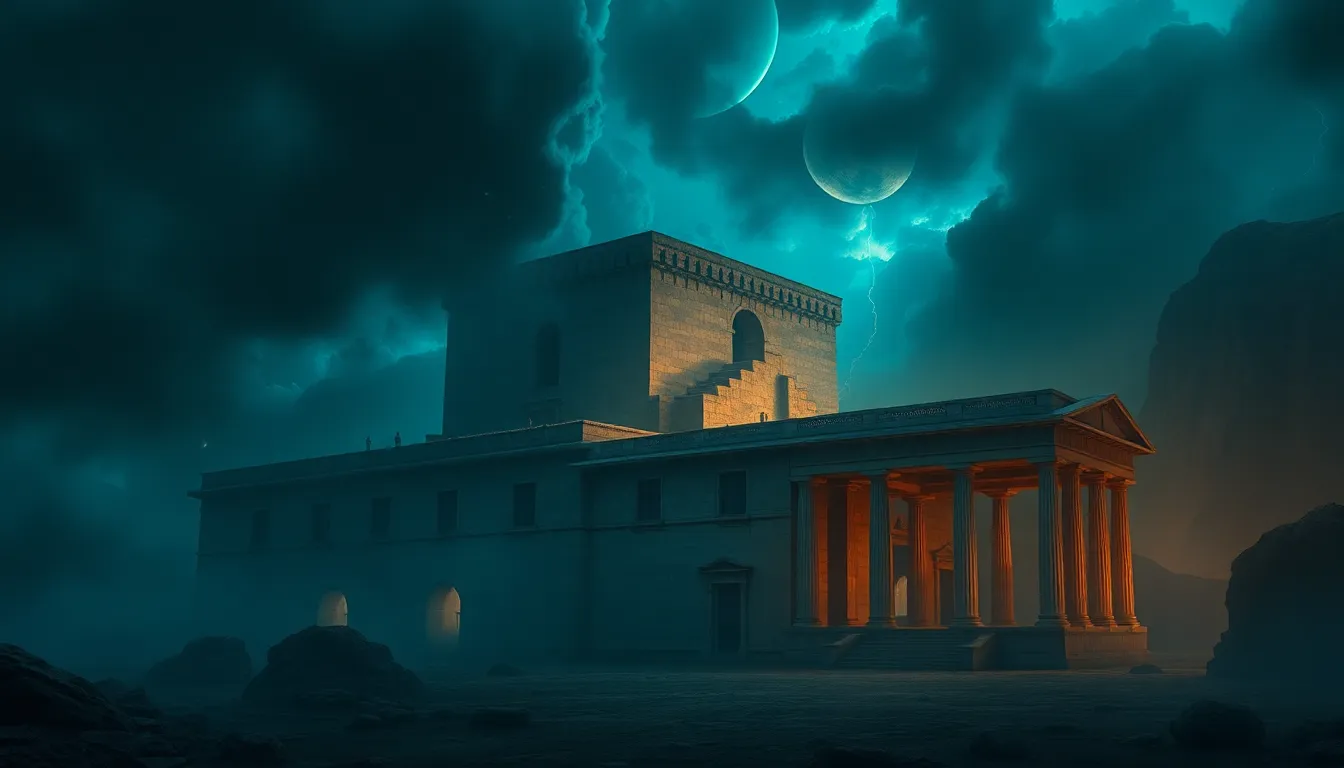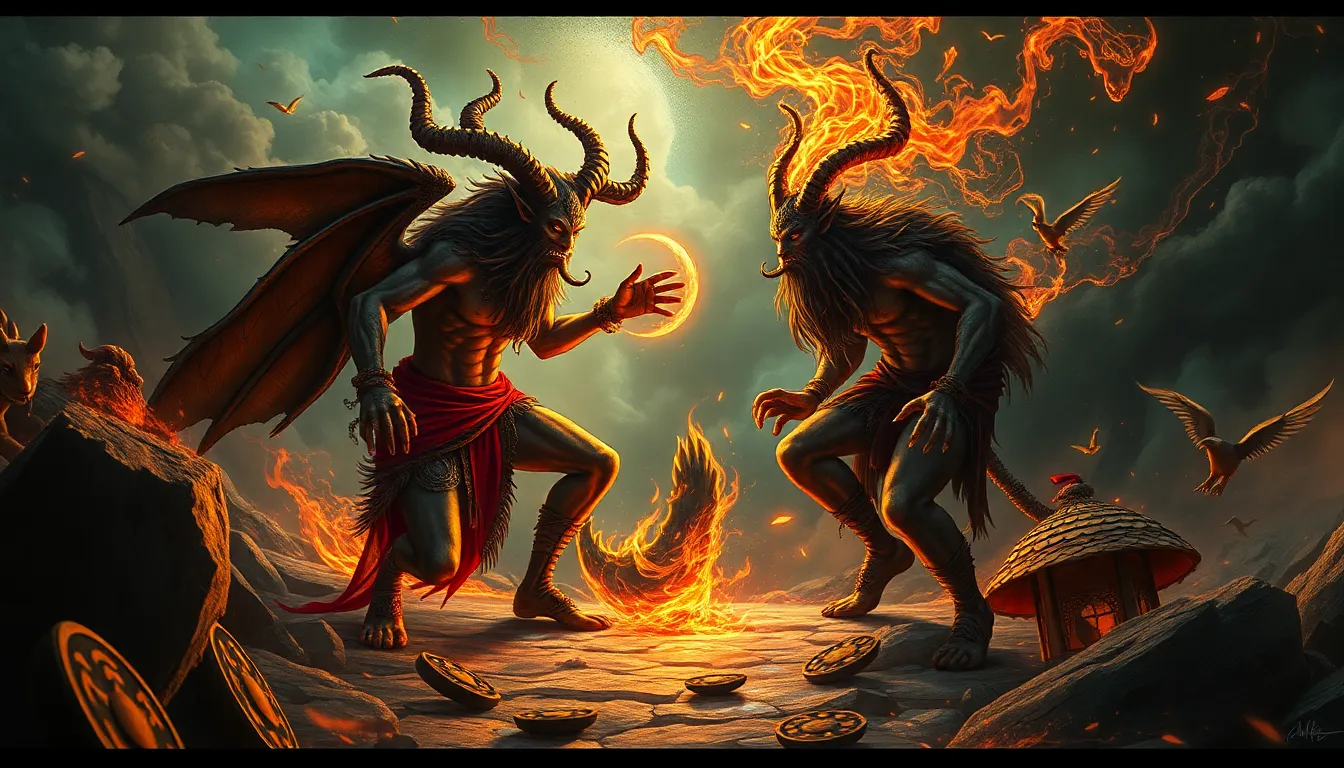When the Waters Rose: The Surprising Truth Behind Ancient Flood Myths
Introduction: The Universality of Flood Myths
Across the globe, flood myths serve as powerful narratives that resonate within various cultures. From the ancient civilizations of Mesopotamia to indigenous tribes in North America, tales of catastrophic floods are remarkably prevalent. These myths not only reflect the historical experiences of societies but also reveal deep psychological truths about humanity’s relationship with nature and the divine.
The significance of these myths extends beyond mere storytelling; they offer insight into human history, collective memory, and the psychological underpinnings of fear, hope, and resilience in the face of disaster.
The Great Flood: A Common Narrative
Many flood myths share a strikingly similar narrative structure characterized by themes of destruction, rebirth, and divine intervention. The archetypal story often involves:
- A great flood sent by deities to cleanse the earth of humanity’s sins.
- A chosen survivor or group of survivors who endure the deluge, often with the help of divine guidance.
- The eventual rebirth of the world, symbolizing renewal and hope.
This narrative pattern reveals a universal human experience: the fear of losing everything and the hope for a second chance.
Comparative Analysis of Notable Flood Myths
Several notable flood myths illustrate the common threads that connect diverse cultures:
- The Epic of Gilgamesh (Mesopotamia): One of the earliest known flood stories, it features Utnapishtim, who builds a boat to survive a flood sent by the gods to rid the world of humanity’s wickedness.
- The Biblical Noah’s Ark (Judeo-Christian tradition): Noah is commanded by God to build an ark to save his family and pairs of animals from a devastating flood that cleanses the earth.
- The Hindu story of Manu and the Fish: In this narrative, Manu is warned by a fish (an incarnation of the god Vishnu) to build a boat and save himself and the seeds of all life from an impending flood.
- Native American flood myths: Various tribes possess unique flood stories, often featuring a trickster figure who causes or survives the flooding, reflecting their spiritual and cultural values.
While these narratives differ in details and cultural significance, they share fundamental themes of survival, divine providence, and the cyclical nature of destruction and rebirth.
Historical and Geological Context: Evidence of Cataclysmic Events
The prevalence of flood myths may have been inspired by real historical events. Geological evidence suggests that ancient communities experienced significant cataclysmic events, such as:
- Megafloods resulting from glacial melts at the end of the last Ice Age.
- Tsunamis caused by tectonic activity, particularly in coastal regions.
- Severe flooding due to heavy rainfall or changes in river courses.
These events could have left a lasting impact on the collective memory of societies, giving rise to mythologies that sought to explain and make sense of such devastating occurrences.
The Role of Climate Change in Shaping Flood Myths
Ancient cultures were deeply attuned to their environments. As climate patterns changed, leading to floods or droughts, societies interpreted these disasters through their mythologies. For instance:
- Periods of heavy rains may have led to widespread flooding, prompting the creation of narratives that depicted divine displeasure.
- Shifting climates could have resulted in food shortages, fostering fear and a longing for divine intervention expressed through flood myths.
These myths served as a means for communities to cope with the unpredictability of their surroundings and to construct a shared understanding of their world.
Cultural Symbolism: Floods as a Metaphor for Change
Floods often symbolize more than just physical destruction; they encapsulate profound cultural meanings. In various traditions, floods represent:
- Cleansing: The idea that water purifies and renews, washing away past sins and creating a fresh start.
- Chaos: The uncontrollable forces of nature that disrupt the established order and force societies to adapt.
- Rebirth: The notion that, after destruction, life can begin anew, often depicted through the survival of a hero or a small group.
This symbolic interpretation of floods reveals much about humanity’s desire for renewal and the hope for a better future.
Psychological Perspectives on Flood Myths
From a psychological standpoint, flood myths resonate with fundamental human emotions. They tap into:
- Fear: The terror of natural disasters and the potential loss of life and stability.
- Hope: The belief that survival is possible in the face of overwhelming odds, which inspires resilience.
These narratives fulfill a critical psychological need, providing comfort and a sense of shared experience among communities facing adversity.
Modern Interpretations and Relevance of Ancient Flood Myths
In contemporary society, interest in ancient flood myths persists, especially in the context of environmental crises. Modern interpretations often highlight:
- The relevance of these myths in understanding current climate change and its repercussions.
- The resurgence of environmental themes in literature and media, drawing parallels between ancient stories and today’s challenges.
By revisiting these narratives, modern audiences can find wisdom and cautionary tales that resonate with current issues.
Lessons from the Past: What Ancient Flood Myths Teach Us Today
Ancient flood myths offer valuable lessons for today’s society. They remind us of the importance of:
- Environmental stewardship: Recognizing our responsibility to care for the planet and mitigate the impacts of climate change.
- Resilience: Embracing the ability to adapt and rebuild after disasters.
- Storytelling: Understanding the power of narratives in preserving cultural memory and imparting wisdom across generations.
As we face modern challenges, these lessons from ancient myths can guide our actions and inspire hope for the future.
Conclusion: Bridging Past and Present Through Flood Myths
Understanding ancient flood myths is crucial for grasping the complexities of human history and psychology. These narratives reveal shared fears, hopes, and cultural values that transcend time and geography. As we explore these stories, we uncover the threads that connect us to our ancestors and to each other.
In an era marked by climate change and environmental uncertainty, the call to action is clear: we must delve deeper into these ancient tales, learn from the past, and work collectively toward a sustainable future.



